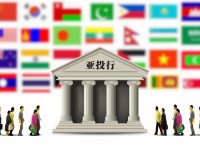Dan Steinbock, Founder, Difference Group
Aug 04, 2015
The White House’s effort to hammer the Trans-Pacific Partnership (TPP) agreement in Maui failed. As time is running out for President Obama’s legacy achievement, both Washington and Beijing are reassessing their options.
Zha Daojiong, Professor, Peking University
Jul 06, 2015
The past two years witnessed the Chinese leadership enunciating a “Chinese Dream” visions for the nation and offering to share the prospects of prosperity and stability with the entire Asia Pacific region and beyond.
Shen Dingli, Professor, Institute of International Studies, Fudan University
Jul 02, 2015
Despite its serious concern about information security, the US displayed more impressive diplomatic courtesy than in previous sessions, helping the two sides to build trust, reduce suspicion, and restore collaboration. That contributes to a constructive atmosphere for the upcoming summit meeting of the two countries’ leaders.
Zhao Minghao, Professor, Institute of International Studies at Fudan University, and China Forum Expert
Jun 12, 2015
The U.S.-China Strategic Dialogue, the seventh of its kind, will take place soon amidst an increasing rivalry between the two countries. Ensuring stable peace and continued prosperity in the Asia-Pacific region will require both countries to replace their self-serving interpretations of the other’s strategic intentions with more sober assessments.
Dan Steinbock, Founder, Difference Group
Jun 05, 2015
Despite obstacles, the White House continues to push preferential trade deals in Asia and Europe. But neither can reverse the erosion of U.S. innovation and in Asia Pacific the proposed pact is more likely to divide than unify the region.

Steve Russell, US Congressman
Jun 05, 2015
With trade deals on the horizon, President Obama has asked Congress to grant him trade promotional authority, also called fast track, to ‘‘write the rules for the world’s economy.’’ This measure would allow the President to pass sweeping trade partnerships without the input of the American people through their elected representatives in the normal process.
Zhao Weibin, Researcher, PLA Academy of Military Science
May 20, 2015
The US DOD’s 15th report on China’s military, pushing China again into the rank of potential adversaries. Indeed, only the four militaries of the former Soviet Union, China, Iran, and North Korea have enjoyed the “privilege” of US DOD’s annual scrutiny. In addition to the monotonous description of the latest developments in Chinese armed forces, this year’s report has some new features.
Mel Gurtov, Professor Emeritus of Political Science, Portland State University
May 18, 2015
The Trans-Pacific Partnership (TPP), with congressional approval, is primed to have “fast track” status to avoid public debate. The TPP would provide new incentives to send jobs abroad, increase corporate earnings, remove protections from both overseas and U.S. environments and workers; supporters argue that it is necessary to “outflank” China.
Jeffrey Frankel, Professor, Harvard University's Kennedy School of Government
May 14, 2015
Comparing the world’s two largest economies by “who’s on top” analysis is the wrong way view U.S. and Chinese leadership, and can even be a barrier to sensible policy, like IMF quota reform. The rules of the game now require a larger and more equal share in the governance of the international institutions.

Dan Steinbock, Founder, Difference Group
Apr 13, 2015
Over the past two years, Washington has lobbied against the China-led Asian Infrastructure Investment Bank. Now, nearly 50 countries have joined or applied to become prospective founding members. Dan Steinbock argues that the U.S. opposition is a reflection, not the cause, of a deeper challenge – that of adjusting American exceptionalism into the era of multipolar world economy.
Back to Top

- China-US Focus builds trust and understanding between the U.S. and China through open dialogue among thought leaders.
- Our Offerings
- Topics
- Videos
- Podcasts
- Columnists
- Research Reports
- Focus Digest
- Stay Connected
-
Thanks for signing up!
- Get the latest stories from China-US Focus weekly.